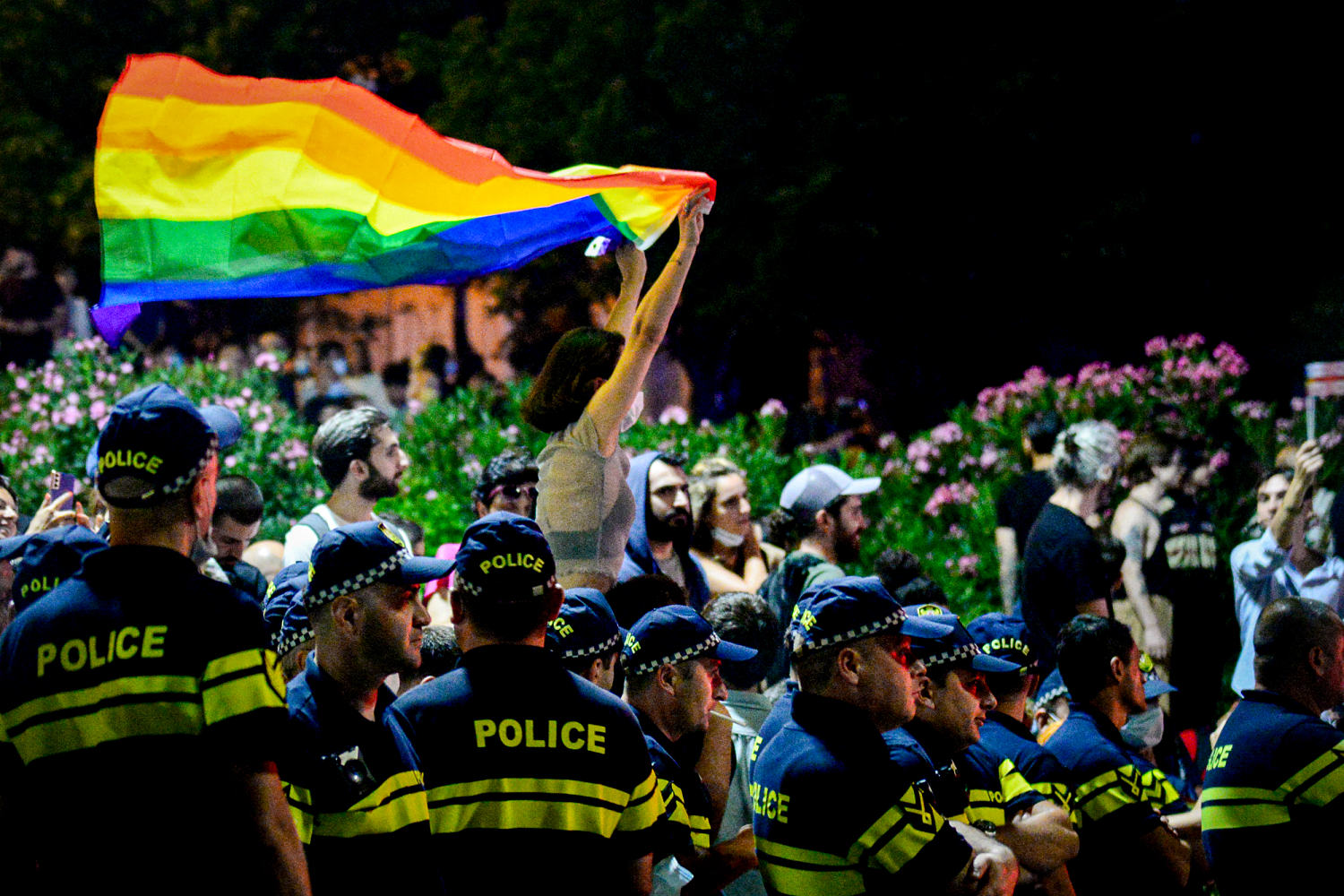
TBILISI — Georgian lawmakers on Tuesday approved the third and final reading of a law on “family values and the protection of minors” that would impose sweeping curbs on LGBTQ rights.
The bill would provide a legal basis for authorities to outlaw Pride events and public displays of the LGBT rainbow flag, and to impose censorship of films and books.
Leaders of the governing Georgian Dream party say it is needed to safeguard traditional moral standards in Georgia, whose deeply conservative Orthodox Church is highly influential.
Activists say the measure is aimed at boosting conservative support for the government ahead of a parliamentary election on Oct. 26 in Georgia, a country that has ambitions to join the European Union but which Western governments fear is now tilting back towards Russia.
Tamara Jakeli, director of campaign group Tbilisi Pride, said the bill, which also restates an existing ban on same-sex marriage and bans gender reassignment surgery, would likely force her organisation to close its doors.
“This law is the most terrible thing to happen to the LGBT community in Georgia,” Jakeli, 28, told Reuters. “We will most likely have to shut down. There is no way for us to continue functioning.”
Georgian President Salome Zourabichvili, a critic of Georgian Dream whose powers are mostly ceremonial, has indicated that she will block the bill. But Georgian Dream and its allies have enough seats in parliament to override her veto.
LGBT rights are a fraught topic in Georgia, where polls show broad disapproval of same-sex relationships, and the constitution bans same-sex marriage. Participants in Tbilisi’s annual Pride marches have come under physical attack by anti-LGBT protesters in recent years.
The issue has become more prominent ahead of October’s election, where Georgian Dream is seeking a fourth term in office and is campaigning heavily against LGBT rights.
The ruling party, whose top candidate for the election is billionaire ex-prime minister Bidzina Ivanishvili, has deepened ties with neighbouring Russia as relations with Western countries have soured.
Earlier this year, it passed a law on “foreign agents” that the European and U.S. critics said is authoritarian and Russian-inspired. Its passage sparked some of the largest protests Georgia has seen since independence from the Soviet Union in 1991.
Opinion polls show the party, which in 2014 passed a law banning anti-LGBT discrimination before later pivoting to more conservative positions, remains Georgia’s most popular, though it has lost ground since 2020, when it won a narrow majority in parliament.
In one ruling party advert aired on Georgian television, Pride director Jakeli’s face is shown alongside the words: “No to moral degradation”.
Jakeli said that the bill could only be stopped if Georgian Dream were to lose power in October, though she noted that the country’s opposition parties are not overtly supportive of LGBT rights.
“The only way we can survive in this country and have any progress on LGBT rights is for us to go in great numbers to the elections and vote for change,” she said.
